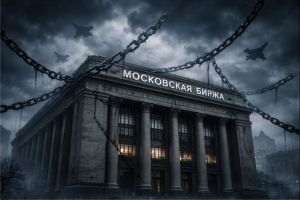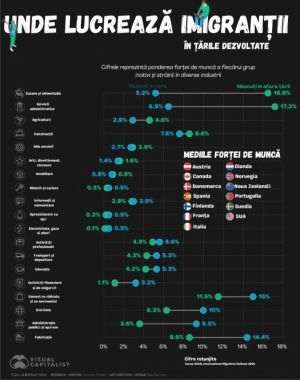
The urge "Mircea, act like you're working!", back in the days of the so-called revolution of December 1989, was brought back recently by a new "director".
We are talking of course, about the meeting between NBR governor Mugur Isărescu, and a government "delegation" led by chamber of deputies chairman Liviu Dragnea, together with PM Viorica Dăncilă.
Sources from within the PSD, quoted by ziare.com, have claimed that, "in the meeting with the NBR governor, Liviu Dragnea seemed to be looking for a way out, and he seems confused, as he didn't expect his decisions to lead to such effects in the economy".
After the meeting, in front of the cameras, Liviu Dragnea's attitude was radically different and he stressed that inflation had exogenous causes, which are beyond the influence of the NBR or of the government. Furthermore, the government and the NBR have expressed their "decision" to work together for the economic "progress" of Romania, with the recent conflict between them being swept under the rug.
The exogenous causes are also "blamed" on the letter sent by governor Mugur Isărescu to the president of the Chamber of Deputies, where it is shown that "the hike of the annual inflation rate was caused particularly by exogenous, temporary and statistical factors" (see the exchange of opinions on the insert below).
The two representatives of the NBR have also presented charts in their meeting with the government, according to the reports in the press, but what has been statistically lacking is the one that shows a comparison of the dynamic of the GDP and of the M1 money supply.
According to official data, the M1 money supply has increased 2.6 times in 2007 until the end of last year, as the cash in circulation has increased almost 3 times, while the nominal GDP has increased about 2 times.
The increase of the money supply has picked up speed in 2012, when the real GDP expressed in 2000 year prices was still below the 2008 level, which it reached in 2014.
As the real GDP increased about 27% between 2007 and 2017, and the cash in circulation has increased almost 200%, can there really be no talk about the influence of monetary factors in "stimulating" inflation?
Upon the exit from recession, in 2011, the median level of interest rates was above 6%, as the coupon of 10-year government bonds was almost 8%, and the policy rate was 6%.
The accelerated decline which followed had a significant exogenous component, namely the ECB going down the path of negative interest rates and of increasing the money supply. Back then the "exogenous" factor was good, but unfortunately, it did not get the "recognition" it deserved from the NBR nor from the government.
In terms of its economic structure and its government policies, which interest rate would be a better "fit" for Romania, one of 6% or one of 2%?
Moreover, if the exogenous factors have such a high influence on the economic indicators used in the stabilization of monetary policy, and a central bank uses them as an argument for failing to reach the inflation target, then couldn't it be said that the macroeconomic models are not just useless, but actually harmful?
After denying, in the letter sent to the NBR governor, that the "inflationary burst appears because of the budget revenue and fiscal policies", the president of the Chamber of Deputies claims that "the average citizen doesn't feel the inflation calculated by the IPC inflation, but the median inflation", and that stood at 1.1% in 2017, according to data from Eurostat, estimated based on the EU methodology.
Aside from the preference for the median inflation calculated by the Eurostat, which is 0.2 percentage points than the INS median, Liviu Dragnea's statement makes no sense from an economic point of view.
"Feeling the median inflation" is similar to the situation of the two families which on average eat one hen per meal, when one has two hens, and the other has none, meaning statistical data is used to manipulate the population.
No, citizens aren't feeling just the median inflation, perhaps not even the official inflation, which was 3.3% in December 2007.
That point was recently proved by a journalist from Capital, who went to the same supermarket with a year-old receipt and bought the same products, but for which he paid over 20% more.
Moreover, Liviu Dragnea claims that "the inflation calculated by the NBR is heavily statistics based, as it compares the consumer price index with a fixed base of the current year to that of the same period of the previous year".
But the "official" inflation isn't calculated by the NBR, but by the INS - National Statistics Institute (author's note: the website of the institution also presents the calculation methodology), and the central bank uses that data not only to include it in the inflation targeting model, but also for the short and medium term forecasts.
Yes, the median inflation is one of the nominal convergence criteria in the Eurozone, but for inflation targeting the annual inflation rate is used, because it reflects the loss of the population's purchasing power.
That is the reason why the NBR says in its letter that "it has opted to use the annual inflation rate because the ratio allows the ongoing observation of the inflation in relation to the target, and what the average citizen feels is more the CPI inflation, rather than the one calculated based on the Eurostat methodology".
In the letter of the NBR governor it is stated that "a potential intervention on the exchange rate would not only prove unsustainable and would lead to the pointless loss of the currency reserves, but it would also affect the credibility of the central bank".
But is there any credibility of the monetary institution of the Romanian left to affect, when there has been no kind of taking of responsibility for the effects of the monetary policy and of the oversight policy so far?
When it says in the letter that "regardless of the level of surplus demand, its very existence requires a prudent economic management, which relies on anti-cyclical policies", because "the pro-cyclical policies from the public authorities do nothing but deepen the imbalances", did governor Isărescu refer only to the governmental policies?
Perhaps, but the NBR shouldn't forget that its monetary policy had the same nature, as the estimates of the institution, published in the periodical report on inflation, shows that the output gap (author's note: the difference between the actual GDP and the potential one) went into positive territory more than three years ago and has been rising constantly since then.
A few days prior to the meeting at the Parliament's Palace, governor Mugur Isărescu participated in a conference in the capital of Bulgaria, where he said "it would be a shame for the necessary reforms not to be done as long as there is a window of opportunity, as pointed out by the international financial organizations and the European specialized institutions, including the ECB", as a "slowdown of the economic activity is unavoidable and it would be wise at that time to have some room to maneuver and an economy as robust as possible".
A great shame indeed, but the structural reforms have been postponed or have simply not been done precisely amid the ultralax monetary policy, which has also allowed politicians to "relax" and to forget about their necessity, when it was obvious that a robust economy can't be built with interest rates near zero or through printing money.
The leader of the NBR also mentioned "the biggest adjustment of non-performing loans in Europe in a relatively short time frame" which occurred in the Romanian banking system. According to the data presented by Mugur Isărescu, the rate of non-performing loans has dropped to 6.4% in 2017, from 22% in 2013, amid direct oversight measures and the tax facilities for developing a secondary market for non-performing loans.
What the NBR governor did not mention was that debtors were left just as indebted, as the number of cases of giving in payment is extremely low, because they do not have the advantage of being able to create "financial vehicles" to help them.
Mugur Isărescu said that a favorable development in the banking sector was also the strong growth of the weight of loans granted in Euros, from about one third prior to the crisis, to about two thirds currently, a phenomenon which "lowered the risk of contagion and has improved the mechanism of transmission of the monetary policy".
Once again, the participants in the conference were not presented with the fear that debtors are feeling when it comes to the explosive rise of the reference rates on the interbank market. Caught between increasingly higher payments and inflation, debtors, especially those who have "benefited" from the "Prima Casă" (First Home) program, probably feel happier with the fact that they have been spared the contagion. They had better hope that feeling of happiness will keep them warm next winter, especially since the interest rates have a lot of room to rise until the so-called "normalization".
In political science courses, the term "banana republic" describes an unstable country whose economy is dependent on the export of a single product or a small number of commodities, as per Wikipedia.
It also states that in terms of the economic structure, "a banana republic is a country where state capitalism dominates, and the economy works as a private entity which only the ruling class benefits from".
The exploitation of resources and labor is usually done based on the complicity between the state and the favored economic monopolies, and the profit is considered private property, while the responsibility for the accrued debts is "transferred" to the state budget, according to the definition of Wikipedia.
Our economy may not depend on the exportation of one product or of a small number of commodities, but Romania is one of the biggest exporters of bananas in the EU, according to several articles that have appeared online in the last few years.
And in terms of the characterization of "state capitalism", doesn't that part of the definition of a "banana republic" fit us like a glove?
That is the "construction" built in the almost 30 years elapsed since the "revolution" of December 1989, and the goal of the reunion seems to have been nothing more than the confirmation of a proverb from roman historian Tacitus: "success has many parents, failure is an orphan".
Still, both Liviu Dragnea and Mugur Isărescu have come out smiling from the meeting. Why? Because they already know who to blame and they know they won't pay for the disastrous mix of macroeconomic policies promoted, just like nobody did out of those who have temporarily held positions of authority over the last few decades.
BETWEEN PARRALEL EXCULPATIONS
Liviu Dragnea, in his letter to Isărescu
- The monetary policy, the exclusive function of the NBR, represents an essential component of the mix of macroeconomic policies promoted to ensure an accelerated, but sustainable and long lasting economic development;
- The monetary policy needs to harmonize with the government policies, and the measures taken since the beginning of the year have not been the best way to coordinate the macroeconomic policies;
- The monetary policy needs to be shaped according to the governmental policies set through the governing program, without raising questions over the ability of the government to implement the measures they have committed to;
- the members of the Board of the NBR induce a state of distrust in the government in the economy, and the hike of the interest rate based on suspicions concerning the activity of the government does not represent a sound monetary policy;
- The opinion of the Board of Directors of the NBR, according to which the turnaround of the absorption of European grants is lagging, is mistaken and totally at odds with the achievements of 2017 and the government's commitments for the current year;
- Romania has shown a sustainable macroeconomic picture in 2017, and the main macroeconomic indicators have been sustainable;
- It is erroneously considered that the inflationary burst is the result of the fiscal and revenue policies, as the inflation calculated by the NBR has a heavy statistical nature, as it compares the consumer price index with a fixed base of the current year to that of the same period of the previous year;
- The main causes which have determined inflation are not the result of governmental actions, as the economy almost generally uses the Euro as a reference; inflation is changed based on the exchange rate, and the exchange rate policy is not made by the government;
- The significant increases of the policy rate are liable to affect the confidence in the Romanian economic environment;
- In other countries such as Czech Republic, Poland or Hungary, which have a demand surplus similar to that of Romania, either the policy rate hasn't been changed, or where it has been, it has slightly increased, thus ensuring the conditions for the development of the business sector and the economy; inflation has increased consistently in these countries as well, but on the other hand the central banks cooperate with the governments to reach common targets;
- The achievement of the budget provisions and of the commitments in the Governing Program depend to a certain degree on the monetary policy as well, and that is why dialogue between the institutions involved is so important.
________________
Mugur Isărescu, in his response to Dragnea
- the price targeting objective was reached in 2017;
- The decisions of the Board of Directors of the NBR have targeted the behavior of the monetary policy in the context of the significant and quick increase of inflation;
- the lack of reaction of the NBR would have led to inflation expectations being tethered to a new higher level, because economic operators would have interpreted the lack of reaction from the NBR as a tacit acceptance of the new inflation level;
- The risk of depreciation of the leu would have increased, which could generate new inflationary pressures, because the NBR can't fight the pressures of the monetary market regardless of the circumstances, especially if they are accompanied by a change in the perception by investors;
- The hike of the annual inflation rate was generated first and foremost by exogenous, temporary and statistical factors;
- The monthly price increases also reflect fundamental inflationary factors, such as the accumulation of inflationary pressures on the demand side, the increase of wage costs and increased inflationary expectations in the short term;
- The measures passed by the NBR represent the only correct, justified and proportionate reaction to the inflationary threats and to the growing imbalances in the economy;
- we share the point of view of a good combination between the monetary policy and the government's economic policy;
- Inflation and the exchange rate represent symptoms of the quality of the mix of economic policies, and the chain of causes - budget deficit - current account deficit - weakening of the leu - inflation must be viewed as in correlation not just with the monetary policy, but with the government's fiscal-budgetary and tax receipts policy;
- the full management of the aggregated demand by the NBR involves the more intense use of monetary policy instruments, which would generate a larger rise of the interest rate, because the use of macroprudential instruments, to reduce demand by compressing credit, is not enough;
- a potential intervention on the exchange rate would not only prove unsustainable and would lead to the pointless loss of the currency reserves, but it would also affect the credibility of the central bank;
- the situation in Romania is different from the one in Czech Republic, Poland or Hungary, as the inflation rate is within the targeted range (mostly due to some prudent budget policies), and the pressures are on the strengthening of the currencies, unlike Romania, where the pressures are towards its weakening;
- the announcing of risks to the balances of the economy does not amount to expressing suspicions concerning the government's policy;
- The NBR has opted to use the annual inflation rate because the ratio allows the ongoing observation of the inflation in relation to the target, and what the average citizen feels is more the CPI inflation, rather than the one calculated based on the Eurostat methodology;
- the demand surplus is an unobservable size and it is justifiable its more cautious approach, because when its effects manifest themselves through inflation and foreign deficit it is too late for an effective action of the monetary authority;
- Regardless of the level of surplus demand, its very existence requires a prudent economic management, which relies on anti-cyclical policies, and the pro-cyclical policies from the public authorities do nothing but deepen the imbalances;
- In this context, the measures taken by the NBR had as their goal minimizing the risks of a eventual forced adjustment when the economic cycle enters a negative slope.























































